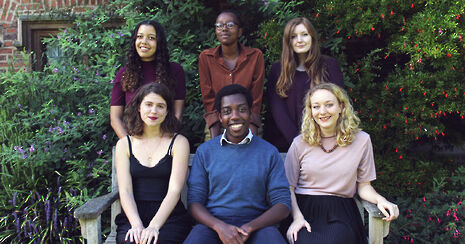CUSU Council is still out of touch
The Class List referendum result shows the decision-making body has a long way to go. We should demand more from our representatives

One year ago this week, as a bright-eyed first-year fresh from my second CUSU Council experience, I wrote an article: ‘CUSU: A heart in search of a body and a brain’.
Retrospectively, I was a bit of a prick in it, a view shared by then-president Priscilla Mensah (I later learnt). To an extent, she had a point. Already working with a single-minded determination and backing some tough arguments, being slagged off by an upstart hack who’d been at Cambridge for less than two months probably didn’t go a long way to endear her.
Many criticisms, however, still stand. Any keen fresher (or aspiring student politico) who heads down to the University Centre – Council’s newer, colder venue – is bound to leave a little underwhelmed.
Progress through motions is turgid, and discussion is still hampered by a strange paradox: when someone is actually making an interesting point, time limits are enforced, but when someone is taking forever to say something, they tend to be given it.
Most of the (small) body of attending JCR and MCR reps remain passive, and speeches are reserved for a select few who shape the debates. Pinning down the source of this problem is complex. It is impossible to make any thorough attempt at figuring out how Council members decide how to vote. In a perfect world, when the Council agenda arrives, the presidents and externals should consult their colleges about how they should vote on certain issues, or at the very least casually liaise with their own committees. It’s no great stretch to say that this happens extremely rarely, if ever at all. Most embrace the joys of a representational system, and vote based entirely upon what they personally think – which isn’t such a problem most of the time.
Last week’s referendum showed the flaw in that approach – a popular vote of the student body rejected the unanimous judgement of councillors. Amatey Doku may dismiss this as reflective of a changing Council, but I find it impossible to believe that the same thing wouldn’t have happened with this group as it did with last year’s. Then, the presidents and externals meekly capitulated to a policy, proposed by sabbatical officers, which demonstrably lacked student support.
Poor policy reflects badly on both CUSU, and the college unions. In the future, councillors must make more effort to be properly representative of their constituents
 News / Cambridge to have ‘England’s first official cycle street’7 October 2025
News / Cambridge to have ‘England’s first official cycle street’7 October 2025 Lifestyle / Which Cambridge tradition are you?6 October 2025
Lifestyle / Which Cambridge tradition are you?6 October 2025 News / Tompkins Table 2025: Trinity widens gap on Christ’s19 August 2025
News / Tompkins Table 2025: Trinity widens gap on Christ’s19 August 2025 Comment / Flying the flag, properly8 October 2025
Comment / Flying the flag, properly8 October 2025 News / Uni clears don accused of ‘abhorrent racism’3 October 2025
News / Uni clears don accused of ‘abhorrent racism’3 October 2025










